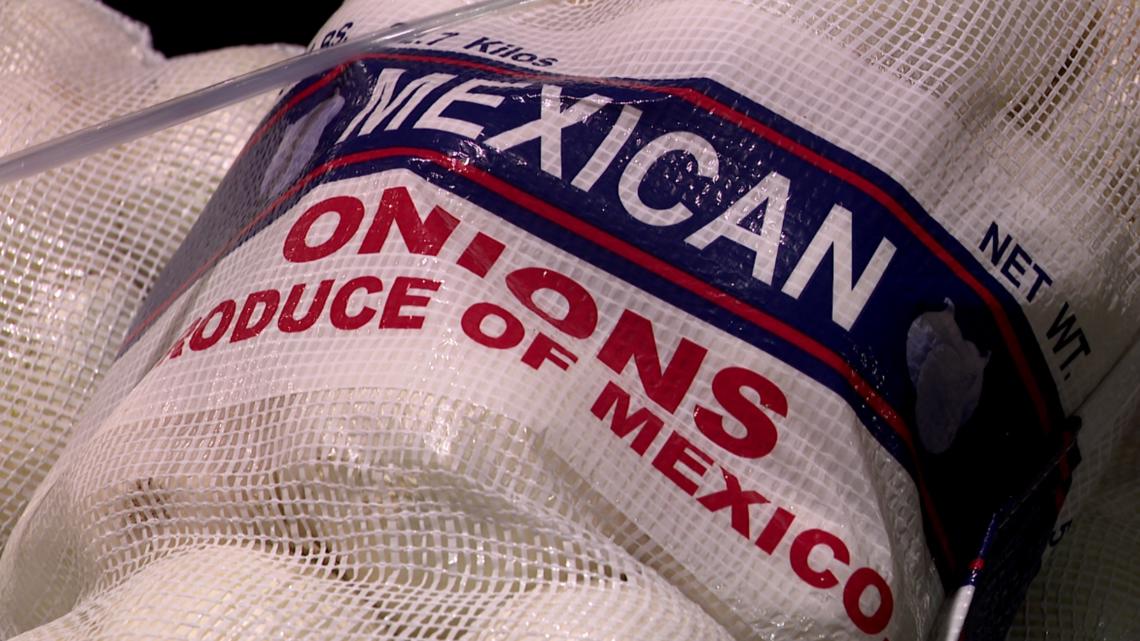
Economist Ray Perryman said he doesn’t anticipate the tariffs staying for long as they will also impact steel, aluminum and energy.
HOUSTON — With 25% tariffs now in effect on imports from Mexico and Canada, your everyday costs could soon be on the rise. That includes your grocery bill.
At Four Boys Produce in north Houston, the shelves are anything but empty.
Richard Alanis walked our KHOU 11 crew through their freezer as he pointed out item after item, “tomatoes, cabbage, squash, cauliflower.”
Alanis said each fruit, vegetable and spice seen at their vendor location will soon be at your favorite restaurant or grocery store.
“Watermelons to garlic, spicy peppers, tomatoes,” Alanis said.
Each item Alanis listed will also soon be hit with a 25% tariff as they are imported to the U.S. from Mexico.
Our southern neighbors, along with Canada, will face steep tariffs on imports. The cost then follows a domino effect as it’s passed to a produce vendor, such as Four Boys.
“You’re saying look [Four Boys is] having to pay potentially 25% more for just one watermelon,” KHOU 11 Reporter Amanda Henderson said.
“Correct,” Alanis said.
“You’re going to have to pass that on to someone,” Henderson said.
“Correct and that will be unfortunately you guys,” Alanis said.
President Donald Trump said the tariffs are going in place to force the U.S.’s neighbors to up their fight against illegal immigration and fentanyl trafficking.
Economist Ray Perryman gives an insight into the long-term impacts.
“If they stayed in place and they were permanent, you’re talking about $250 billion [economic harm] a year in in gross product, You’re talking about almost 2 million jobs [could be lost] in Texas,” Perryman said.
Perryman said he doesn’t anticipate the tariffs staying for long as they will also impact steel, aluminum and energy.
“When a good comes in and the tariffs imposed, it’s simply added to the cost of the good at that point,” Perryman said.
This is a cost Alanis said is widespread.
“It might not feel it, in the first week, but after so long being prolonged, it’s going to hurt your wallet,” Alanis said.
He said that to remain in business, they have to pass the cost when selling their stock and that if vendors start to go out of business, it will only further increase prices due to a lack of supply options.
